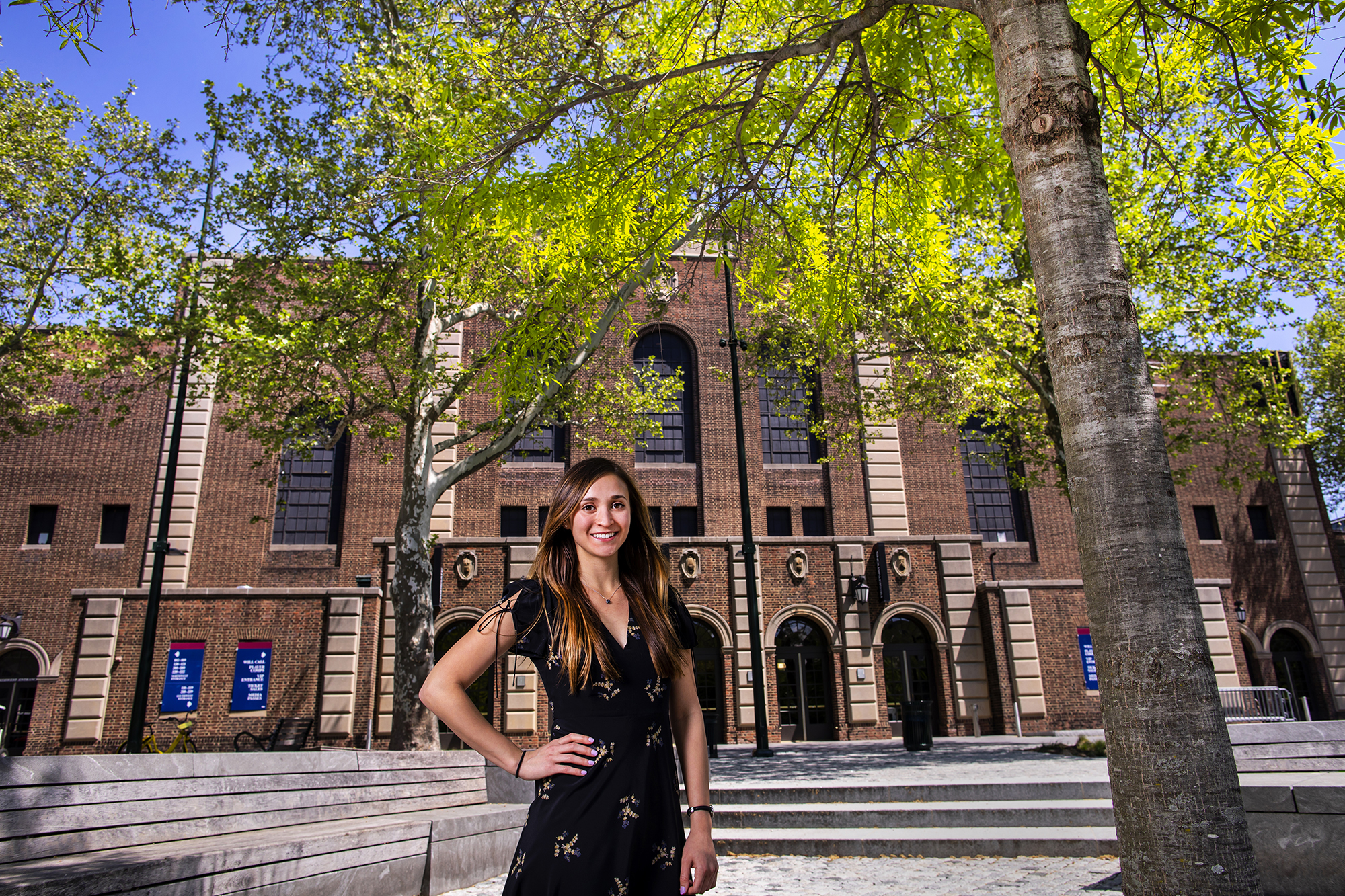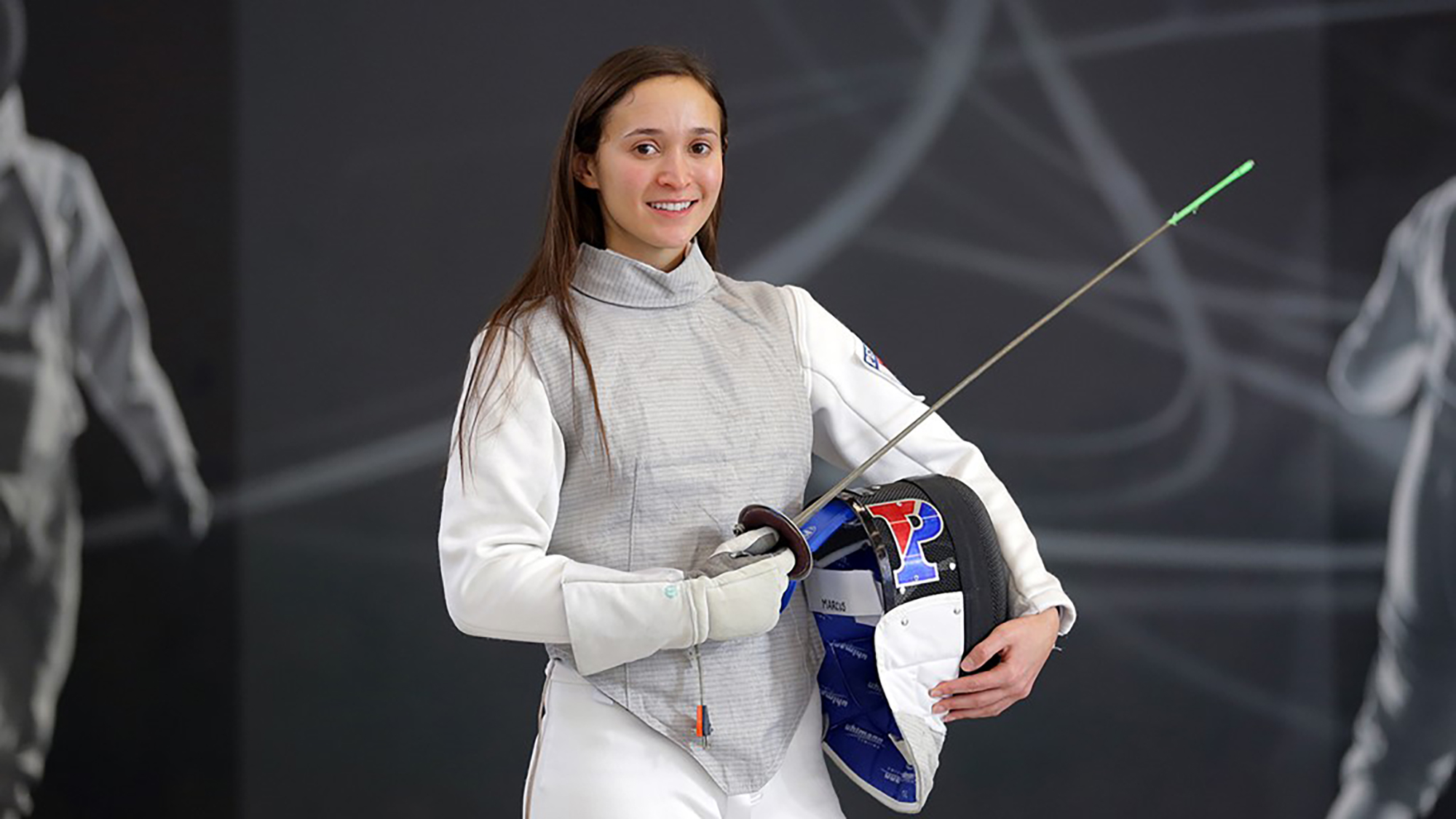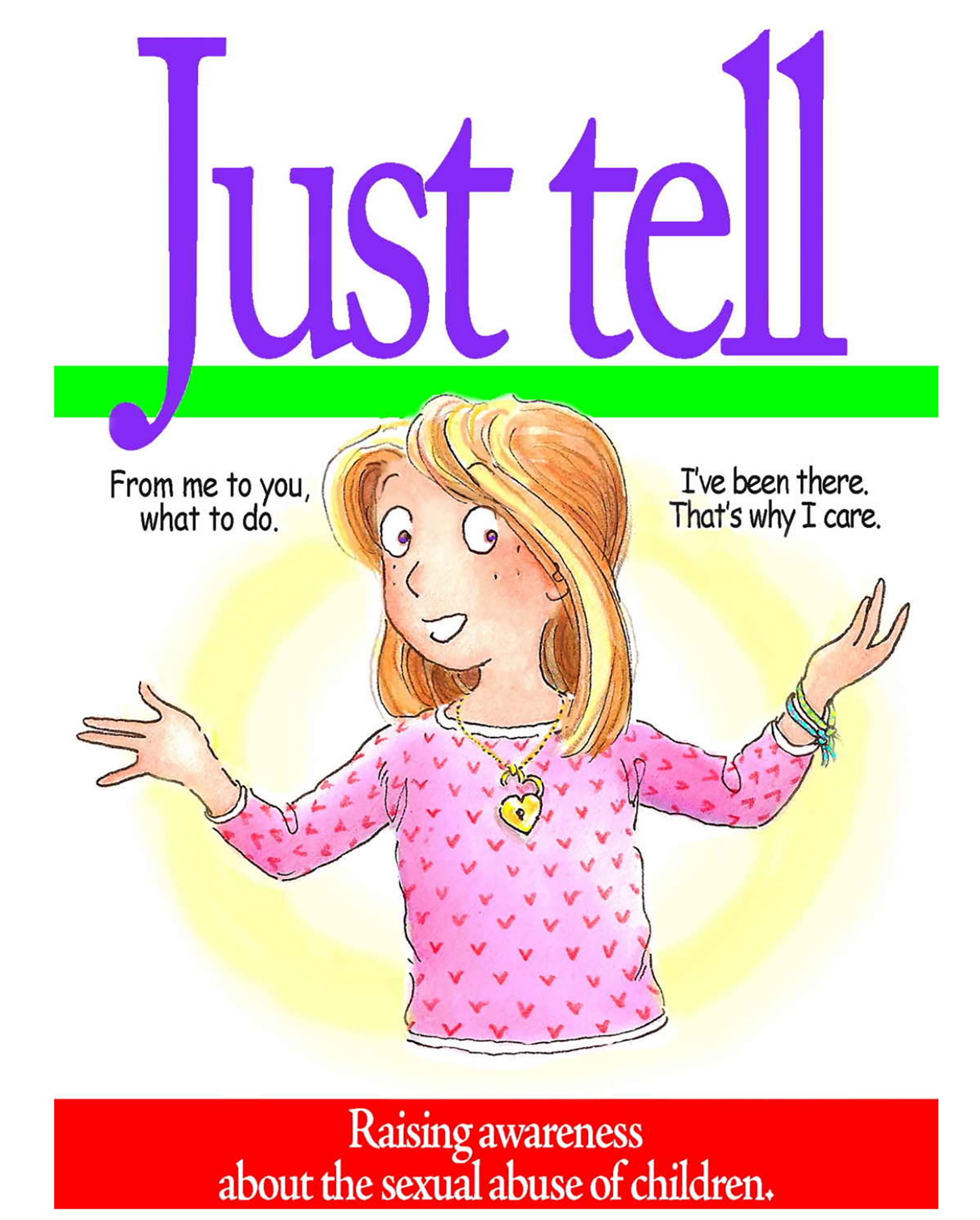
Ashley Marcus, a graduating senior and former member of the women’s fencing team, was recently honored by Athletes for a Better World (ABW) for her work fighting bullying and sexual violence.
At its annual awards ceremony in Atlanta on April 25, ABW presented Marcus with its Coach Wooden Citizenship Cup, which is presented to distinguished athletes from any sport—two high school, one intercollegiate, and one professional—who best display character, teamwork, and citizenship, attributes the organization deems essential to transforming individuals, sport, and society.
Beginning in her early teenage years, Marcus, a communications major from Golden Beach, Fla., has been unwavering in her fight against bullying and sexual violence on multiple fronts, including helping to rewrite legislation, authoring a children’s book, and public outreach to children, teenagers, and adults.
Last summer, she interned at the U.S. Department of Justice in the Criminal Section of the Civil Rights Division, conducting research on sex trafficking. On Penn’s campus, she served as board member of Penn Anti-Violence Educators and a student-athlete representative for the University’s Public Safety Focus Group. She was also instrumental in Penn Athletics’ participation in the “It’s on Us” campaign.
Penn Today sat down with Marcus to discuss fencing, her efforts to combat and prevent sexual violence and bullying, and her devotion to protecting children.
How did you get involved in fencing? I got hurt doing everything else. It was basically process of elimination. Actually, my uncle was the captain of the fencing team in the ’50s. I tried soccer and volleyball and karate. One day I was at a lacrosse game and I collapsed on the field. I got taken to the ER and I’m sitting in a hospital bed, and I called my uncle and I said, ‘So I fractured two ribs and I punctured a lung.’ He said I had to choose between ballet and fencing because I was done with contact sports, and I couldn’t dance so it was really just one choice, and I started fencing. The footwork from karate kind of transferred over a little bit, and eventually I was able to come to Penn and walk on to the Penn fencing team.
What do you enjoy about the sport? I think there’s a challenge in there that every opponent you face is going to be different. You have to have a certain flexibility to figure out how to adapt to face each opponent. There’s also this discipline that you get on the strip, you put on a mask, and you have one objective—it’s just to beat the person in front of you.
What type of training is involved with fencing? Lots of footwork and conditioning, and then a lot of bouting, just continuing to fence your teammates again and again. At Penn, we also get individual lessons from our coaches.
How did you get involved in work fighting bullying and sexual violence? I had a personal experience from 12 to 14 years old in my middle school. Once these other girls and I came forward and reported what we’d been going through, it was handled really, really poorly. I think we actually became more traumatized by how the situation was handled, how the administration responded to us, than we were by the actual abuse. I wanted to figure out why my school was able to respond in the way that they did to kind of cope with the experience myself, and I found that there was this gap in policy between where the school has their responsibility and where police responsibilities come in. No one really took full responsibility in protecting us the way that we should have been protected, so I wrote to senators, and congressmen, lawmakers, explaining what I thought was wrong with this policy and what I wanted to be done about it. Eventually, I was given the opportunity to amend a Florida anti-bullying law and address that gap. Then I started working for the Florida Legislative PTA. I kept hearing parents and students complain that this is still an issue and I realized that it doesn’t really matter if we change the law if there is not enough support surrounding it, if there are not enough people who know about this change, so I started working to write these national resolutions. They passed, and I started going around Florida and then going around the country talking to students about reporting processes and bystander prevention methods, and various things related to those things.
What age group of students did you speak with? When I was going school to school, usually I would only talk to high school and elementary schools because I thought that if they could listen to someone who was up there that’s around their age—someone who’s been through it very recently as opposed to someone who’s only studied this—then maybe they would be inspired to talk about it themselves, maybe it wouldn’t be such a taboo topic to report and talk about it more openly. But then I would get administrators coming up to me saying, ‘Can you talk in our elementary school, too?’ After a few times of that happening, I realized that kindergarten through third grade is this huge age group affected by sexual violence, but no one really wants to talk to a kid that young about sexual abuse, partially because [the students] don’t have the life experience to really know what those things are, they don’t have the vocabulary to talk about it. But because of those things, they are unable to report it when it happens, they are unable to hold a conversation about it when they want to talk about it. You had these barriers on top of reporting when it happens to a kid that young, so the idea was to work with a psychologist and write a book that could help kids and adults talk about sexual abuse. The idea was that in opening up this dialogue, that if something is suspected to be going on with a kid, it can open up this conversation for them to be able to report what’s going on, or just a general conversation that you have with kids so they’re aware of what this is, and if it ever happens, that it’s OK to talk about it.
How was the process of writing your children’s book, ‘‘Just Tell: Raising Awareness About the Sexual Abuse of Children’’? It was pretty fun. I kind of thought back to the books that I read when I was a kid, and I realized it was sort of those Dr. Seuss books, the ones that had sort of a rhyming scheme to it. It was kind of toeing this line between talking about a serious subject, but I also don’t want it to be something that is so serious that kids feel uncomfortable reading it. I was lucky enough to work with this amazing illustrator who works for American Girl doll and was able to make it look like something that a kid would want to pick up and read. And I worked with a psychologist in New York who specializes in trauma. They were both very, very helpful.
Can you talk about the amendment you helped write to Florida’s anti-bullying law, which now requires school districts to adopt an official policy prohibiting bullying and harassment of students and staff on school grounds, at school-sponsored events, and through school computer networks? Why did you think the law needed to be changed? The problem before was that in the definition of bullying, they weren’t including sexual harassment, so when bullying took on a sexual nature, schools didn’t technically have to respond to it. They could have just said, ‘It’s out of our hands, the police will deal with it now,’ without actually notifying the police. And then the police could say, ‘Well, that’s not technically a crime if they’re not saying themselves to us that they feel threatened,’ so there was this gap of who handles it. That’s really troubling when you’re considering the fact that these are kids and they don’t necessarily know how to ask for help, they don’t necessarily know that what’s being done is kind of illegal because it could be harassment or it could go so far as to be assault.
Was this a problem specific to Florida or is it a national problem? I would say that specific gap in policy did pertain to Florida, but I think that there are similar issues that go on around the country. I would say that most institutions still lack effective policies to really deal with sexual assault against really anyone, but I think particularly against children because I think a lot of them don’t take into account the fact that a lot of kids don’t know how to report and don’t have the vocabulary to talk about their experience, and don’t feel comfortable talking about violence as it pertains to anything of a sexual nature. And more than that, I think that even when there is a report, schools have a tendency to be very complacent.
You are a Thouron scholar. After graduating, you will study policy studies and international child protections in Scotland, and then attend Penn Law School. Do you know what you want to do long-term? Not really. I’m very interested in policy and it’d be great to figure out how we can use policy to protect children from sexual violence in schools. I’m not sure exactly what career I can go into that’s going to give me that opportunity because I definitely don’t want to go into politics. I’m hoping that when I get to law school, my professors will sort of guide me into what options are available.










